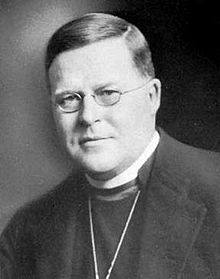24th Week after Pentecost
Feast of William Temple
November 6, 2013
918th Week as Priest
744th Week at St Dunstan’s
9th Week at Epiphany
DEAR EPIPHANY FRIENDS, If you find yourself in Auburn on a Wednesday morning, stay for Holy Eucharist I with Prayers for Healing at 12 noon at St Dunstan’s. Today’s lessons are for the Feast of William Temple, Archbishop of Canterbury, d. 1944. Here is the homily …
SERMON 806 STRIVING FOR JUSTICE
Grace to you, and peace, from God our Father, and the Lord Jesus Christ. Amen.
 The ninety-eighth Archbishop of Canterbury was among the most remarkable men of his age. An Englishman through and through, William Temple was born in 1881 and died in 1944, at the prime of his life in the early years of World War Two.
The ninety-eighth Archbishop of Canterbury was among the most remarkable men of his age. An Englishman through and through, William Temple was born in 1881 and died in 1944, at the prime of his life in the early years of World War Two.
Temple was born to wealth and prestige, but he did not count these things as something to be grasped. His education was in the best schools, and yet he met all people where they were, with grace and hospitality. I feel that I know this man, because he shares so much in common with the Rt. Rev. William McDowell, Fifth Bishop of Alabama. They were almost exact contemporaries. Both were well educated and born to proud old families, and both had what is called “the common touch,” as well as a passion for justice.
These qualities—humility and a passion for justice—are necessary for great leadership, whether it is a government, a church, an organization, or a corporation. And today in 21st Century America, I am afraid both are in short supply.
Humility is viewed as weakness by the rich and powerful. And justice? Well, justice is considered a fiction. What matters, it seems, is winning at all costs—not justice. What matters is not losing, or even better, not getting caught. Profit is what’s important, no matter the human cost. Stock price is everything; justice is given lip-service and nothing more.
How can this be? Justice is named 160 times in the Scriptures. In Deuteronomy, the Book of the Law, it is said,
Justice, and only justice, you shall follow, that you may live and inherit the land which the LORD your God gives you.
King David is remembered as great in the Books of the Kings and the Chronicles of the Kings—not for the battles he won, but because he upheld justice:
David reigned over all Israel; and he administered justice and equity to all his people.
The Psalmist understands that not only does God require justice for his people, he loves justice:
He loves righteousness and justice;
the earth is full of the steadfast love of the LORD.
The Suffering Servant of Isaiah’s prophecy, whom we understand to be a foreshadowing of the Messiah, is a champion of justice:
Behold my servant, whom I uphold, my chosen,
in whom my soul delights;
I have put my Spirit upon him,
he will bring forth justice to the nations.
A bruised reed he will not break,
and a dimly burning wick he will not quench;
he will faithfully bring forth justice.
He will not fail or be discouraged
till he has established justice in the earth;
and the coastlands wait for his law.
These same words are spoken again, in the Gospel of Matthew, including the call for Christ to establish justice in the land.
Archbishop Temple, in his day, did great work to establish justice. We, too, are called to work for justice—in the Prayers of the People, our Eucharistic prayers, and in the Baptismal Covenant.
Will you strive for justice and peace among all people, and respect the dignity of every human being?
We will, with God’s help. AMEN.
24th Week after Pentecost
Feast of William Temple
November 6, 2013
918th Week as Priest
744th Week at St Dunstan’s
9th Week at Epiphany
